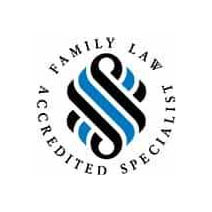What is FDR?
Family Dispute Resolution, or FDR as it is commonly known, is a process in which a Family Dispute Resolution Practitioner (FDRP) helps people resolve and problem-solve their family law dispute. It is a specific type of mediation.
The FDRP is independent and the role of the FDRP is to simply facilitate discussions and keep parties on track. It is important to note that the FDRP does not, in any way, impose an outcome on parties.
FDR can be arranged through Family Relationship Centres (government community-based services) or through a private practitioner. Generally speaking, the fees charged by private practitioners can be higher than the Family Relationship Centres, but given the significant demand for these services, you can expect to arrange your FDR session much quicker with a private practitioner. Accredited FDRPs can be accessed here: https://fdrr.ag.gov.au/.
You can choose to engage in FDR with just the parties and the FDRP, or you can opt for a legally assisted FDR (meaning each party also involves a lawyer).
When is FDR mandatory?
If your matter is in relation to parenting arrangements, the legislation requires parties to have at least attempted and participated in FDR prior to commencing a Court application. This is outlined in section 60I of the Family Law Act 1975 (Cth). The objective of that section is to ensure that people who have a parenting dispute make a genuine effort to resolve that dispute first, before seeking the Court’s assistance.
If you attend FDR and manage to resolve your dispute, you can opt to have your agreement formalized by way of a Parenting Plan or Consent Orders. If you attend FDR and are not able to reach a resolution, your FDRP will give you what is known as a Section 60I Certificate. Each participant receives this certificate, which you then must file with the Court if you commence proceedings.
There are of course exemptions that apply to this rule – and whilst not exhaustive, for example an exemption may arise if the Court is satisfied that there are reasonable grounds to believe that:
- There has been abuse of the child by one of the parties to the proceedings; or
- There would be a risk of abuse of the child if there were to be a delay in applying for the order; or
- There has been family violence, or a risk of family violence, by one of the parties to the proceedings; or
- The application is made in circumstances of urgency.
Importantly, anything discussed in the course of FDR is confidential and inadmissible in any subsequent court proceedings.
My dispute is in relation to property – do I still have to attend FDR?
If your matter is in relation to the division of your assets, whilst the legislation does not mandate parties to attempt FDR prior to commencing a Court application, in most cases, parties still try to mediate disputes rather than commencing a costly and extensive Court application. There are many highly trained and experienced Mediators who can assist you navigate the division of your property following a separation.
Why should I attend FDR?
Apart from parenting disputes (in which attendance at FDR is compulsory unless an exemption can be obtained), there are many benefits of FDR. For example:
- You might resolve your matter in a more cost-efficient manner;
- You have the opportunity to retain control over the outcome rather than having a decision-maker impose an outcome on you, your family, or your assets;
- You have the chance to improve your relationship with the other party and reach agreement in an amicable manner;
- You could reach a resolution fairly quickly rather than waiting a year or two for a Final Hearing within the Court system; and
- Engaging in FDR is less stressful than being a litigant within the Court system.
What can I expect in terms of process?
Whilst every FDRP has their own preferences, the process generally involves an individual intake process with each party, agenda setting, and then the main FDR session in which you discuss the issues, problem-solve and look at various options, and work out the best way for everyone moving forward.
KLH & Associates is a boutique law firm based in Castle Hill in the Hills District that offers specialist family law advice. We also practise in the areas of Conveyancing, Wills & Estates, Commercial Law, Building & Construction Law, and Criminal Law. This post is only intended as a general overview and is not intended to be construed as legal advice. If there are any matters that you would like advice on, please contact us on (02) 9894 9133.






